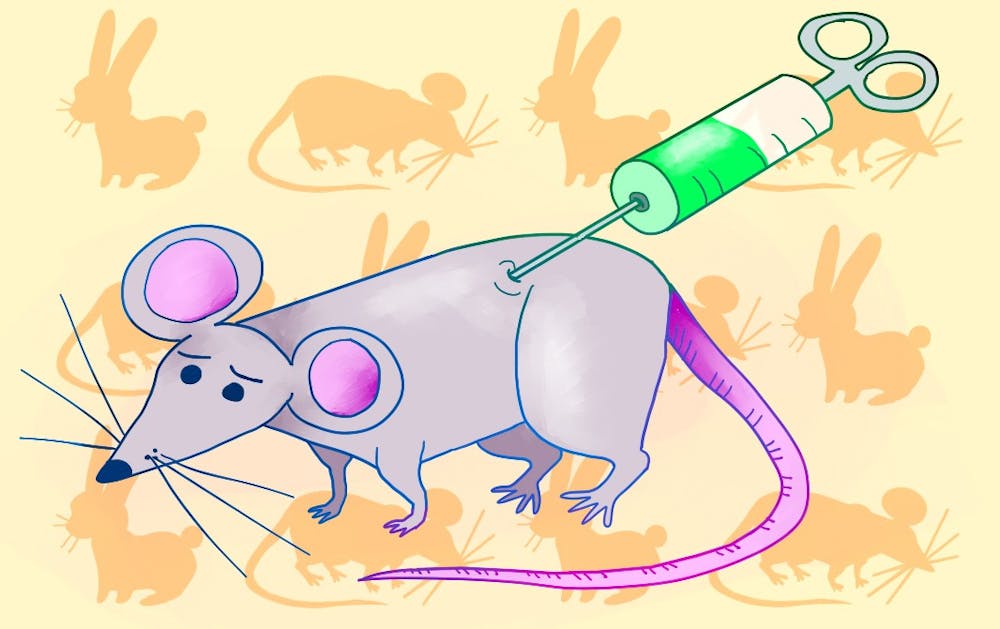In a letter sent to the Arizona Auditor General on Sept. 2, animal rights organization People for the Ethical Treatment of Animals, or PETA, requested an audit of ASU and UA’s use of state resources to support animal research activities that may have led to animal euthanization due to the pandemic.
The letter requests an investigation of the universities’ “apparent waste of state funds” on experiments and research animals that were deemed non-essential during the pandemic. The letter also asks for investigation into the number and species of animals used in research and the “endpoint disposition” of those animals.
The letter references ASU and UA’s combined state appropriations of almost $700 million in the fiscal year 2019, as well as directives issued by the universities to “ramp down” laboratory operations that PETA obtained using Freedom of Information Act requests.
PETA also claims the universities' decision to continue the acquisition and maintenance of animals used in experiments they deem non-essential is in violation of the U.S. government guides for the care and use of animals used for research and experiments.
ASU Science Communications Director Skip Derra said in an email that no animals were euthanized due to being deemed non-essential.
"The modifications in research protocols enacted due to the pandemic did not affect ASU’s animal operations," the spokesperson wrote. "ASU has kept all animal operations ongoing as critical research."
The spokesperson also said the University continually reevaluates the effectiveness of animal use and research activities they are involved in and that the University "encourages alternatives to animal use wherever possible."
In ASU’s “Laboratory ramp-down guidance and checklist,” released in response to COVID-19, laboratory personnel are instructed not to begin additional animal experiments, release temporarily housed wild animals to “decrease the number of animals that need to be cared for daily,” and postpone animal orders if possible.
Shalin Gala, vice president of international laboratory methods at PETA, said the group’s audit request is part of a larger attempt to call attention to what they say is a widespread issue among public universities in the U.S.
Since the beginning of the pandemic, Gala said PETA received whistleblower notices from various university-connected sources alerting them to animal euthanization “en masse.”
PETA subsequently filed FOIA requests and started monitoring social media for researchers posting about shutting down labs due to COVID-19, he said.
In the documents PETA obtained, Gala said many universities described research animals as non-essential, raising questions as to whether the animals should have been used for research in the first place.
“It doesn't make any sense why taxpayers are spending millions and millions of dollars every year on these experiments if the universities themselves are saying that ... they're extraneous, or they're non-essential, or they're non-priority,” Gala said.
If the audit confirms the universities misused taxpayer funds, Gala said PETA will urge the auditor to ensure current state-funded research using animals is terminated, and future state-funded animal research and the acquisition and breeding of animals for these purposes is no longer approved.
Katherine Poe, a junior double majoring in biological sciences and political science and president of the Veg Out club at ASU, said her group has worked on bringing animal testing and research practices at ASU to light since last December, when they started looking into experimentation on monkeys in ASU labs.
In documents she obtained through FOIA requests, Poe found there were 26 monkeys used for experimentation by the University in 2018.
Research activities involving monkeys included prolonged restraint, water restriction and "multiple major survival surgeries," according to a 2019 University document Poe obtained through FOIA.
Poe and the Veg Out club are working to spread awareness about animal testing and experimentation at ASU through a petition to end vivisection on primates and continued inquiry for documentation of ASU’s research animal usage.
"Our ultimate goal is to have the primates who are being used be released to sanctuary and for ASU to, first of all, commit to no longer use non-human primates in experiments, and second of all, commit to investing in non-animal research models," Poe said.
Reach the reporter at gforslun@asu.edu and on Twitter @GretaForslund.
Like The State Press on Facebook and follow @statepress on Twitter.




